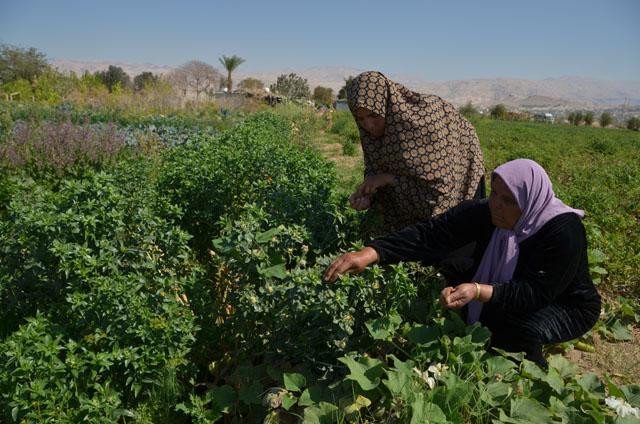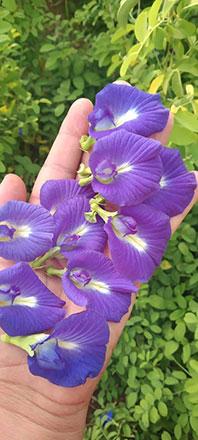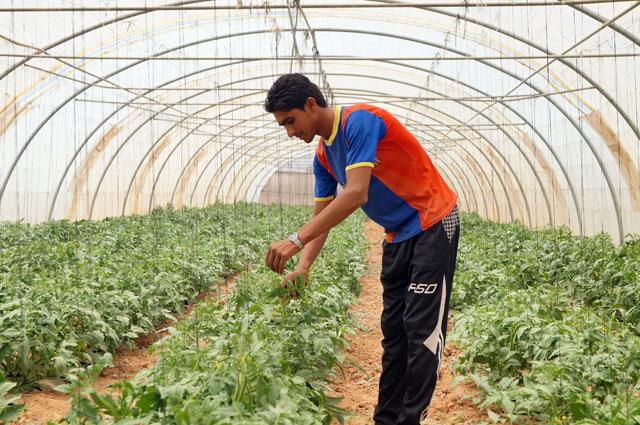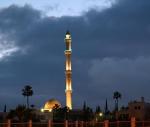You are here
Family-run Ghor Al Mazraa farm a lifeline of sustenance
By Muath Freij - Apr 10,2014 - Last updated at Apr 10,2014

GHOR AL MAZRAA –– As the world increasingly chooses to turn to mechanised means to solve its problems, one family in Ghor Al Mazraa is sticking to traditional measures in running their flourishing farm.
Maslam Ayyad and her family have been cultivating tomatoes and various types of herbs, since 1972.
The farm is a lifeline of sustenance for Ayyad, a widow, helping her provide for her family’s needs and also paying for her children’s education.
For Ayyad, better known in the area as Um Bakr, the farm is not only a means of income, but also a way of life, as farming has been part and parcel of her ancestry for as long as she can remember.
“I used to help my parents in cultivating the land and harvesting the crops,” Um Bakr told The Jordan Times in a recent interview at her farm, located in the southern Jordan Valley.
It is through this culture of generational farming that her family has acquired much of the knowledge that she continues to put into good use today.
The 60-year-old recalled that when she got married in 1972, her husband always made sure to plant both tomatoes and herbs.
“He did this because he did not want to depend on one kind of vegetable. Instead, he introduced herbs onto the farm as they are not seasonal and therefore can be planted throughout the year. It is the herbs that pay our bills,” the mother of 12 and grandmother of 20, recounted.
Um Bakr plants Corchorus (commonly known as mlukhiya), mint and thyme in the summer, while in winter she plants spinach, parsley and cumin.
Najah, one of Um Bakr’s daughters, explained that they note down the types of herbs that are the most purchased by their customers.
“This helps us know the most popular herbs among our clients, so that we can plant more of them in the future,” she added.
Um Bakr stressed that she likes to not only work on her farm, but also reside on it, unlike most farmers in the area.
“It’s better to stay on the farm because that way you can keep a close eye on everything and protect it from thieves” she noted.
It is not only in this sense that Um Bakr is different from other farmers, as she prefers old traditional farming methods over more modern techniques.
“I use fish to make the fertiliser because I get higher quality crops,” she explained, noting that chemical fertilisers result in unhealthy crops because they are not organic.
Although her children have grown up, and some of them have taken other jobs, Um Bakr said they have not abandoned her and continue to help with the farmwork.
Najah said working at the farm is much more beneficial than other jobs because it feeds them directly.
Um Bakr believes that it is this close-knit family cooperation that has been an “important factor” in the success of their business.
“There are many wives who do not help their husbands, or children who refuse to join their parents on the farms, simply because they feel embarrassed to be working on the land,” she said.
The time this family has invested in the farm is also something which has been passed down to Um Bakr’s grandchildren, who also help out during harvesting.
However, there are some factors that remain a challenge to the farming community.
Um Bakr explained that the huge expenses involved in running a farm have forced most owners to sell their land.
“The lack of water is also another factor that makes it difficult for most farmers here.”
Nevertheless, Um Bakr’s reputation means that she does not need to display her goods in the market as all her customers come to her, she said.
“My clients come from across the Kingdom to buy their favourite herbs.”
Amnah Bayaydah, one of Um Bakr’s loyal customers, said she was impressed with the quality of the produce.
“I like to buy from Um Bakr because she picks the herbs right in front of you”.
Related Articles
AMMAN — Motivated by the study of female agricultural labour, a Jordanian-Armenian social anthropologist started conducting research in Ghor
AMMAN — Agricultural photography is helping small-scale farmers export high-end produce to foreign markets. Suhaib Ayyad, a 27-year-old
SAHAB — During their spiritual and agrarian wayfaring, a group of Baloch and Sindhi farmers settled in the fertile land of the Jordan Valley



















